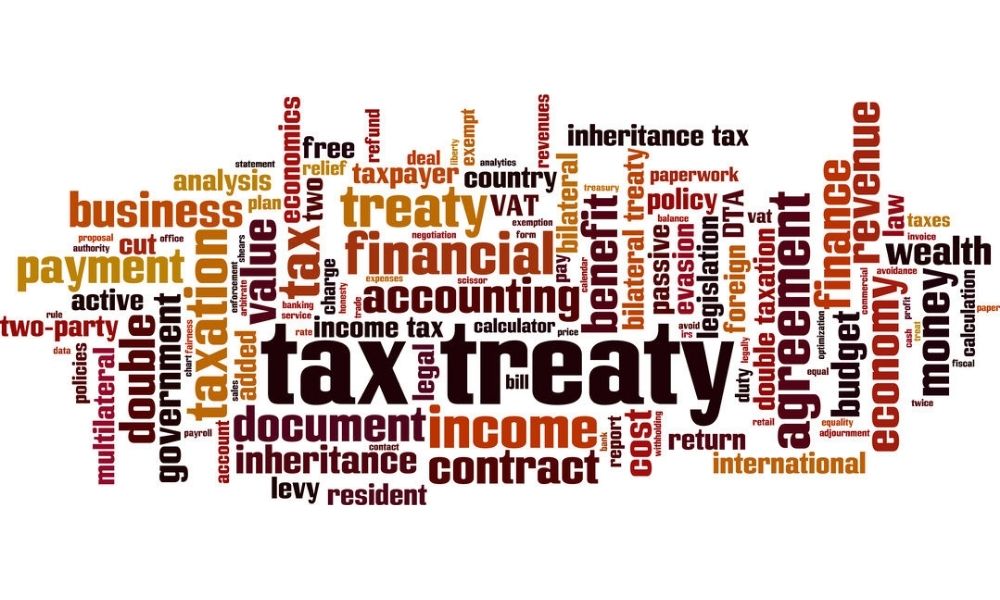Tax treaties are agreements between two or more countries that aim to prevent double taxation and promote cooperation in tax matters. These treaties are designed to provide tax benefits to individuals and businesses operating in multiple countries. In this article, we will explore the concept of tax treaty benefits, how they work, and their importance in international taxation.
Contents
Understanding Tax Treaty Benefits
A tax treaty benefit is a provision in a tax treaty that allows taxpayers to reduce or eliminate their tax liability in one country by taking advantage of tax incentives provided by another country. These benefits are available to individuals and businesses that are residents of one or both of the countries that have signed the treaty.
One of the main objectives of tax treaties is to prevent double taxation, which occurs when a taxpayer is subject to tax on the same income in two different countries. This can happen when a taxpayer is a resident of one country but earns income in another country. Without a tax treaty, the taxpayer would be required to pay taxes on the same income in both countries, resulting in a higher tax burden.
By providing tax treaty benefits, countries aim to promote cross-border trade and investment by reducing the tax burden on individuals and businesses operating in multiple countries. These benefits also help to avoid disputes between countries over the taxation of cross-border income.
Read:Is friends with benefits bad?Types of Tax Treaty Benefits
There are several types of tax treaty benefits that are available to taxpayers. These benefits may vary depending on the specific tax treaty and the countries involved. Some of the most common tax treaty benefits include:
1. Reduced Tax Rates
One of the most significant tax treaty benefits is the reduction of tax rates on certain types of income. Tax treaties often provide for lower tax rates on dividends, interest, and royalties earned by residents of one country from sources in another country. This reduction in tax rates can significantly reduce the tax burden on taxpayers and encourage cross-border investment and trade.
For example, the tax treaty between the United States and Canada provides for a reduced withholding tax rate of 15% on dividends paid by a Canadian company to a U.S. resident, compared to the standard rate of 25% for non-treaty countries.
2. Exemption of Certain Types of Income
Some tax treaties provide for the complete exemption of certain types of income from taxation in one country. This means that the income is only taxed in the country where the taxpayer is a resident, and no tax is due in the other country. This type of tax treaty benefit is particularly beneficial for individuals and businesses that earn income from foreign sources.
Read:How are disability benefits calculated?For example, the tax treaty between the United States and the United Kingdom exempts income from personal services performed in the United Kingdom by a U.S. resident from U.K. taxation, as long as the individual is present in the U.K. for less than 183 days in a 12-month period.
3. Tax Credits
Tax treaties may also provide for tax credits to offset taxes paid in one country against taxes due in another country. This means that if a taxpayer is subject to tax on the same income in both countries, they can claim a credit for the taxes paid in one country against the taxes due in the other country. This helps to avoid double taxation and ensures that the taxpayer is not paying more than their fair share of taxes.
For example, the tax treaty between the United States and Germany allows U.S. residents to claim a credit for German taxes paid on income earned in Germany against their U.S. tax liability on the same income.
How to Claim Tax Treaty Benefits
In order to claim tax treaty benefits, taxpayers must meet certain requirements and follow specific procedures. These requirements and procedures may vary depending on the specific tax treaty and the countries involved. However, there are some general steps that taxpayers can follow to claim tax treaty benefits:
Read:Are fringe benefits taxable?1. Determine Eligibility
The first step in claiming tax treaty benefits is to determine if you are eligible for the benefits provided by the tax treaty. This will depend on your residency status and the type of income you have earned. Taxpayers should consult the specific tax treaty and seek professional advice if necessary to determine their eligibility.
2. Obtain a Tax Residency Certificate
In most cases, taxpayers will need to obtain a tax residency certificate from the tax authority in their country of residence. This certificate will serve as proof of residency and will be required when claiming tax treaty benefits in the other country.
3. Submit the Appropriate Forms
Taxpayers will need to submit the appropriate forms to the tax authority in the country where they are claiming tax treaty benefits. These forms may include a tax return, a tax residency certificate, and any other supporting documents required by the tax authority.
4. Follow the Specific Procedures
Each tax treaty may have specific procedures that taxpayers must follow to claim tax treaty benefits. These procedures may include filing deadlines, specific forms to be submitted, and other requirements. Taxpayers should carefully review the tax treaty and follow the procedures outlined to ensure that they receive the full benefits available to them.
Importance of Tax Treaty Benefits
Tax treaty benefits play a crucial role in international taxation and have several important implications for individuals and businesses operating in multiple countries. Some of the key benefits of tax treaties include:
1. Avoidance of Double Taxation
As mentioned earlier, one of the primary objectives of tax treaties is to prevent double taxation. By providing tax treaty benefits, countries ensure that taxpayers are not subject to tax on the same income in two different countries, which can significantly reduce the tax burden on individuals and businesses.
2. Encouragement of Cross-Border Trade and Investment
Tax treaty benefits also help to promote cross-border trade and investment by reducing the tax burden on individuals and businesses operating in multiple countries. This can encourage businesses to expand their operations into new markets and can also attract foreign investment into a country.
3. Prevention of Tax Disputes
Tax treaty benefits also help to avoid disputes between countries over the taxation of cross-border income. By providing clear rules for the taxation of cross-border income, tax treaties can help to prevent conflicts between countries and promote cooperation in tax matters.
Case Study: The Impact of Tax Treaty Benefits on International Business
To better understand the importance of tax treaty benefits, let’s look at a real-life example of how these benefits can impact international business. In 2018, the United States and France signed a new tax treaty that included several changes to the tax treatment of cross-border income between the two countries.
One of the key changes in the new tax treaty was the reduction of the withholding tax rate on dividends paid by French companies to U.S. residents from 30% to 15%. This change was expected to have a significant impact on U.S. investors in French companies, as it would reduce their tax burden and make investing in France more attractive.
As a result of this change, many U.S. companies increased their investments in French companies, leading to an increase in cross-border trade and investment between the two countries. This demonstrates the importance of tax treaty benefits in promoting cross-border business and investment.
Conclusion:
Tax treaty benefits are an essential aspect of international taxation and play a crucial role in promoting cross-border trade and investment. These benefits help to prevent double taxation, encourage cooperation between countries, and reduce the tax burden on individuals and businesses operating in multiple countries. Taxpayers should carefully review the tax treaties between the countries where they operate to take advantage of the tax benefits available to them. By understanding tax treaty benefits, individuals and businesses can minimize their tax liability and maximize their profits in the global marketplace.









